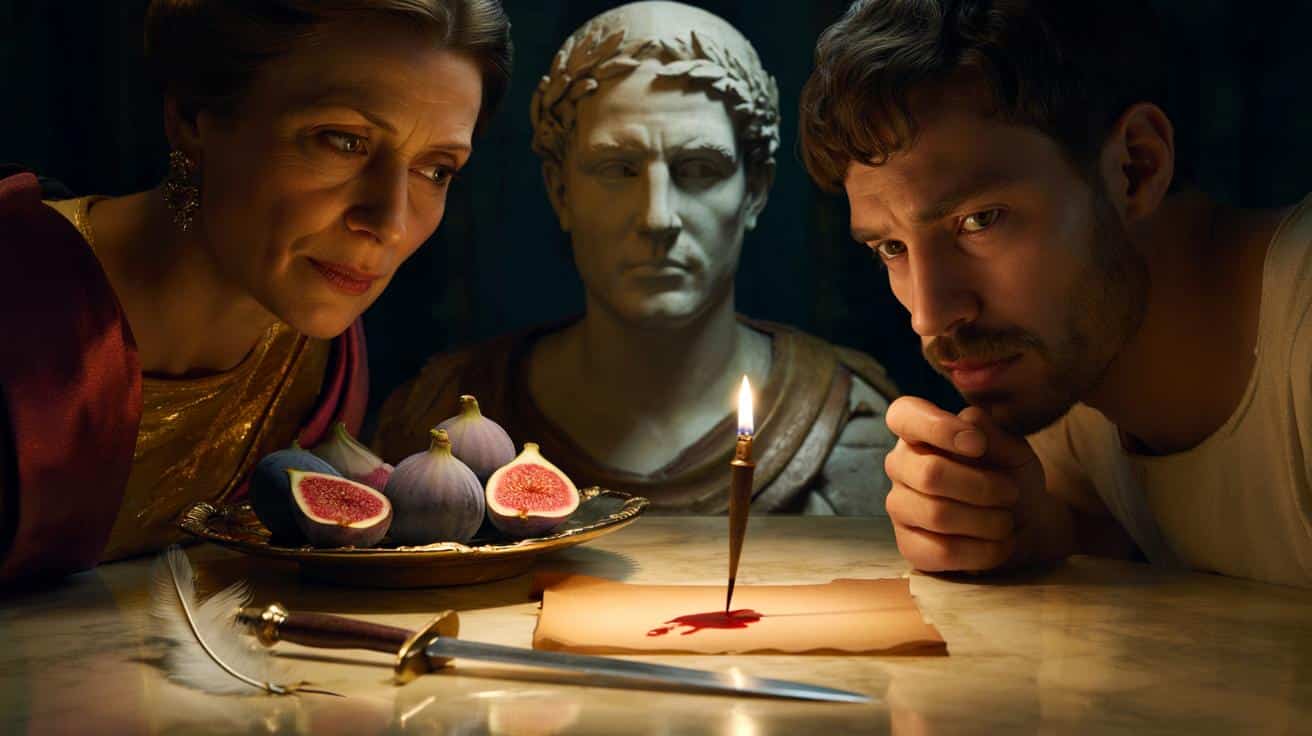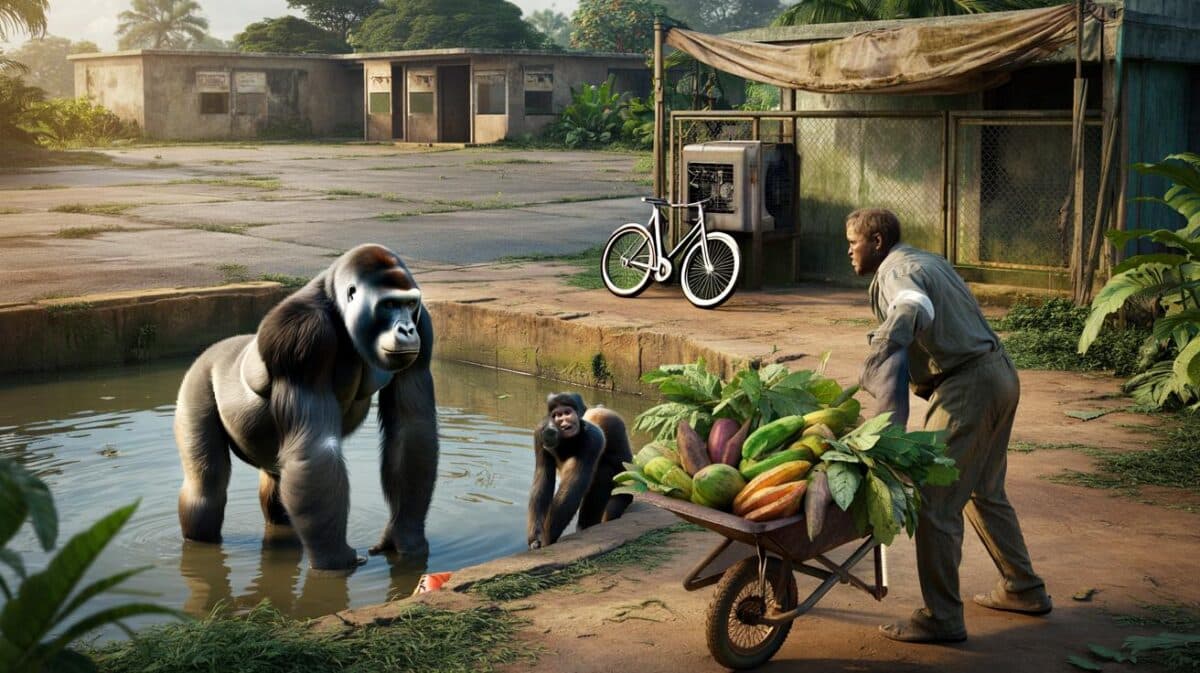A BBC period drama, made in a studio with rattling jewellery and venomous whispers, keeps surging back into the zeitgeist. It’s based on a pair of novels. It’s the series fans keep nominating as “the greatest TV of all time.”
The opening titles hummed, that ancient bust loomed, and within minutes I was inside a Rome that felt like a family argument overheard through a bedroom wall. No CGI. No marble landscapes. Just faces, sweat, and the kind of silence that tells you secrets are about to move.
I found myself leaning forward at every aside, every bitten-off word. John Hurt’s eyes flashed like a match. Derek Jacobi’s stammer turned into a blade. It shouldn’t work. It does.
Why this ‘Masterpiece’ still rules
I, Claudius began life in the pages of Robert Graves. The TV version doesn’t just adapt it; it locks you inside Claudius’s head and refuses to let you go. The framing device — the emperor writing his own history — turns the camera into a confession box, and every character knows they’re sitting in the pew.
The shock is in the restraint. You get studio floors and painted columns, then Siân Phillips’s Livia leans in and the room chills. Fans talk about the “figs” scene or that nightmarish party with Caligula and a swan, and you can see why they never left. When the show reappears on a streamer or late-night schedule, it spikes again, shared like contraband in WhatsApp groups and Reddit threads.
There’s a practical reason it works so well on screen. Graves wrote in crisp, gossipy bursts, each chapter like a confession or a memo from the palace. TV loves that rhythm. Dialogue-driven scenes carry the weight, the way a good play does, and the result is a series that feels intimate, almost conspiratorial. It’s power politics as domestic drama, and it sings in close-up.
How to watch it now, and really feel it
Start with a simple ritual. Two episodes in one sitting, lights low, captions on for the names, and a quick glance at a Julio-Claudian family tree before you press play. Keep your phone facedown. Let the voices map the palace corridors for you.
We’ve all had that moment where an “old” show asks for patience and we bail at the first wobble. Give I, Claudius 90 minutes. Accept the theatre lighting, let the performances pull focus, and the plastic figs turn to poison right before your eyes. Let’s be honest: nobody really does that every day.
Here’s what longtime devotees always say, and they say it with a grin:
“Great TV doesn’t need more money. It needs nerve, language, and a room you can’t leave.”
- Watch Episode 1 (A Touch of Murder) and Episode 2 (Family Affairs) back-to-back. The hook lands by the credits.
- Clock the power triangle: Livia (Siân Phillips), Augustus (Brian Blessed), and Claudius (Derek Jacobi). That’s your compass.
- Don’t Google as you go. The dread is better unspoiled.
- If you read the books, dip into Graves after you finish the run. The echoes feel richer in reverse.
The afterglow and a bigger tradition
What sticks isn’t the “ancient Rome” bit. It’s how modern it feels to watch people use love and loyalty as currency, to see power move like a rumour at dinner. *It still feels shockingly modern.* You can trace a line from I, Claudius straight to Wolf Hall — another BBC drama carved from literary granite — and you feel the same pulse: the private conversation that changes the map.
That’s the BBC at its best, taking a novel’s intelligence and trusting an audience to meet it halfway. It’s the same confidence that made Tinker Tailor Soldier Spy a quiet earthquake, and The Night Manager a glossy, nerve-twitching treat. The costumes change, the rooms get bigger, the budgets swell, yet the trick stays the same: face, voice, silence.
Fans call I, Claudius the greatest TV of all time because it never shouts to be heard. It whispers and lets you do the work. Maybe that’s why it goes viral every few years, why a new generation keeps stumbling in and walking out a little dazed. **There’s a strange comfort in realising the mess of politics and family has always been this messy.** You finish it and look around at your own life, your own tiny court, and see the games in miniature.
Why the book-to-screen alchemy hits so hard
Adaptations thrive when a book hands TV a spine. Graves gave the series a diary, a point of view, and enough slip-knotted twists to keep you off-balance. The team simply put great actors in tight frames and let the language do the stabbing.
There’s also the speed of it. Scenes land, cut, move. No fat. It’s the same trick Hilary Mantel gave Wolf Hall: history as live theatre, lit for television, with a hero who understands he’s writing himself into immortality. **That’s the secret — not accuracy, but electricity.**
People often ask whether they should read first or watch first. Try the series, then the novels. The show gives you faces and rhythms you’ll hear when you open the book; the chapters then deepen the motives you’ve just watched detonate. Your brain will do that delicious double-vision thing where page and screen keep informing each other.
The craft behind the myth
The direction leans on actors the way mountaineers lean on rope. A turn of the head becomes a plot point. That’s why it lands in the gut even if you don’t know your Agrippinas from your Antonia Minors. When Jacobi looks down and half smiles, you feel a century turn.
Music and pacing are almost sneaky. There’s no bombast, just cues that nudge you to dread the next dinner. By the time John Hurt walks into a room, you already know the weather has changed. **The show gets under your skin because it respects your ability to read a face.**
If you’re new to it, don’t rush to judge the production values. Sit with it. Then try an episode of Wolf Hall and notice how the BBC’s literary adaptations keep trusting pause and breath. Different eras, same confidence. The spell isn’t nostalgia. It’s craft.
A living classic that keeps finding new believers
Every few months, someone discovers I, Claudius and posts about it like they’ve found a secret door in the internet. Then the replies pour in, half awe, half “how did I miss this?” That cycle is part of its life now. The series is old enough to be out of fashion, and that’s its superpower. No hype, just the hum of a well-told story.
Think about the shows you love that walk this line — the ones that make looking feel like eavesdropping. Maybe you grew up on modern thrillers and you’re scared of the word “classic.” Try this one night. Let it change your idea of what “great television” means. Argue with friends about the greatest of all time and see how this slips into the shortlist, quietly, inexorably.
And if you’re already a believer, pass it on. You don’t need to pitch it hard. Say what someone once said to you: “Give it two episodes.” Watch the eyes widen. The rest takes care of itself.
| Point clé | Détail | Intérêt pour le lecteur |
|---|---|---|
| The show | I, Claudius — BBC’s studio-set juggernaut adapted from Robert Graves | Names the exact drama people call “the greatest TV of all time” |
| Why it endures | Performance-first, book-led structure, intimacy over spectacle | Explains why it still feels electric on a modern screen |
| How to dive in | Two-episode starter, captions on, family tree glance, no Googling | Practical route to fall for it fast, minus confusion |
FAQ :
- Which book is the series based on?Robert Graves’s I, Claudius and its sequel Claudius the God. The show threads them into one sweeping chronicle.
- Where can I watch it now?Availability rotates. In the UK it often pops up on BritBox or via digital purchase; in the US it’s regularly on PBS Masterpiece channels or rentable on major stores.
- Does it hold up for modern viewers?Yes — if you lean into the performances. The studio look fades in minutes, leaving dialogue and acting that feel startlingly fresh.
- How many episodes are there?Thirteen, each around an hour. It’s bingeable over a long weekend or savoured across a fortnight.
- Is it suitable for families?It deals with assassination, sexual menace, and political cruelty. Teenagers with a taste for history may handle it; younger kids, not so much.








